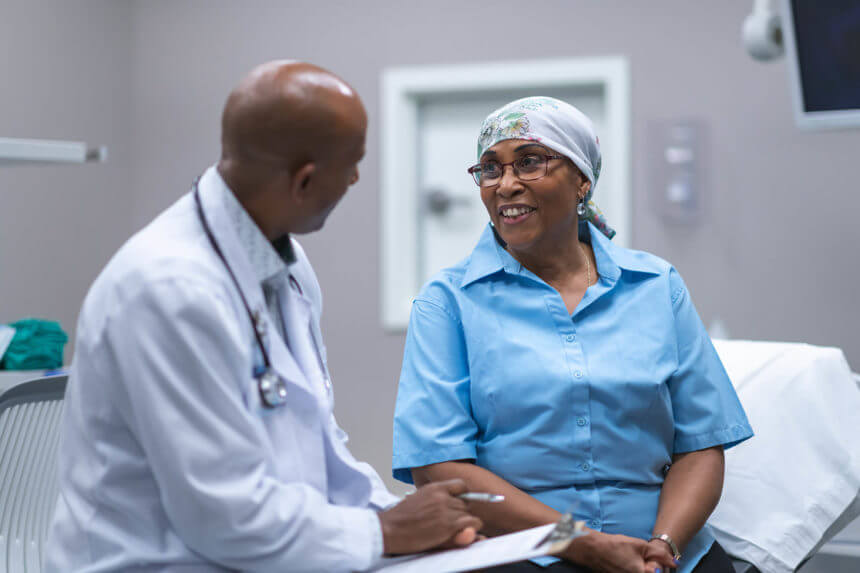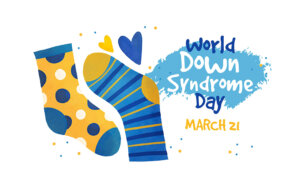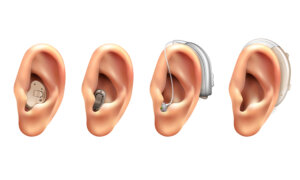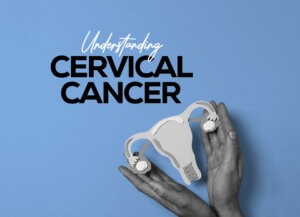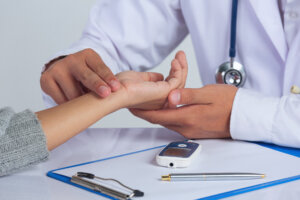If you own a machine, say a car or generator, you’ve probably noticed a change in sound of the engine at times when the petrol in the fuel tank is about to finish or when the engine is about to develop a fault. The change in sound triggers you to investigate and identify what exactly is the issue before it escalates into a bigger problem.
In a similar way, your body occasionally sends out subtle hints, like silent alarms, warning you of potential issues within. However, the difference is that these signs often go unnoticed, dismissed as inconsequential, or attributed to daily life’s stresses. But for those who pay attention, these are crucial signals, indicating the need for investigation.
The context, in this case, is your health, and the alarms we’re discussing are the early signs and symptoms of cancer. Understanding these subtle yet significant signals is vital. Just like the strange change in sound of your car engine, recognizing these early signs of cancer can make all the difference in timely diagnosis, effective treatment, and ultimately, survival.
In this blog post, we’ll take a deep dive into these silent alarms, exploring the importance of early detection and also the vital signs that should not be ignored.
General Symptoms: Unmasking the Subtle Indicators
Cancer does not always announce its presence with a grand gesture. In many cases, it begins with quiet whispers—general symptoms that can be early indicators of various types of cancer. These subtle signals, while common and non-specific, are vital clues that should never be overlooked.
Unwavering Fatigue: Life’s demands can often leave you feeling tired, but when fatigue becomes unrelenting and doesn’t improve with rest, it may be more than just a consequence of a busy schedule. Persistent fatigue, a sense of tiredness that lingers despite adequate sleep and relaxation, can be a sign that something is amiss within your body. Pay attention to this whisper; it could be a call to action.
Mysterious Weight Loss: Shedding a few pounds intentionally through diet and exercise is one thing, but unexplained weight loss without any effort to do so can be concerning. A sudden and unexplained drop in weight, especially if it’s significant, could be indicative of underlying issues. It’s a silent indicator that should prompt further investigation.
Altered Skin: Your skin is a mirror that reflects your overall health, and any significant changes should be taken seriously. Pay attention to changes such as new moles, changes in the color or size of existing moles, unusual rashes, or skin that becomes darker, redder, or more yellow. While many skin conditions are benign, some changes could be a sign that needs to be assessed by a medical professional.
These general symptoms may not immediately point to cancer, but they should serve as a subtle reminder to stay in tune with your body. Early detection often hinges on recognizing these mild alarms and acting swiftly.
Cancer-Specific Symptoms: Decoding the Unique Signs
Cancer, an entity of many faces, can manifest with distinct symptoms depending on its type and location. Early recognition is vital, as recognizing the unique language of each type can lead to more effective treatment and improved outcomes. Let’s explore some cancer-specific symptoms:
Breast Cancer: A dimpling, puckering, or change in the skin of the breast, especially when it occurs on one side, should not be ignored. Unexplained nipple discharge, redness, or swelling, as well as a lump in the breast or underarm area, may be early indicators of breast cancer. Regular breast self-exams are key to early detection.
Lung Cancer: Persistent coughing, especially if it’s accompanied by blood, unexplained weight loss, and ongoing chest pain or discomfort, can be signs of lung cancer. Keep an eye out for changes in your breathing, like chronic shortness of breath or hoarseness, which could also be indicators.
Colorectal Cancer: This type often reveals itself through symptoms like changes in bowel habits, such as persistent diarrhea or constipation. Blood in the stool, narrow stools, unexplained abdominal pain, or unexplained anemia may also be signs. Don’t dismiss these as merely digestive issues.
Skin Cancer: Changes in the skin are particularly significant. Watch for new, irregularly shaped moles, any moles that change in color, size, or texture, or sores that don’t heal. Skin cancer, when detected early, can often be successfully treated.
These are just a few examples, and each type of cancer has its unique early symptoms. By recognizing these specific signals, you can be more proactive in seeking medical attention.
Importance of Early Detection: A Game Changer in the Battle Against Cancer
Cancer is a formidable opponent, but early detection acts as a crucial ally in the fight against it. The impact of recognizing cancer in its initial stages cannot be overemphasized. It can mean the difference between successful treatment and more challenging battles ahead.
Here’s why early detection matters:
Improved Prognosis: Early-stage cancer is typically easier to treat and may respond better to therapy. Survival rates are often significantly higher when the disease is diagnosed in its early phases. The odds of a successful outcome are in your favor.
Less Aggressive Treatment: When cancer is caught early, less aggressive treatments, like surgery or localized radiation, are usually sufficient. This can lead to a quicker recovery, fewer side effects, and a better quality of life.
Increased Survival: Timely detection has a direct impact on survival rates. For example, the 5-year survival rate for breast cancer caught at the localized stage is about 99%, compared to 27% if it has metastasized to distant parts of the body.
To underscore the importance of early detection, let’s consider some telling statistics:
Breast Cancer: When detected early, the 5-year survival rate for localized breast cancer is over 90%.
Colorectal Cancer: The 5-year survival rate for localized colorectal cancer is nearly 90%, while it drops to around 14% for advanced stages.
Lung Cancer The 5-year survival rate for localized lung cancer is approximately 61%, in stark contrast to 6% when it has spread.
The journey through cancer is a challenging one, but it can be significantly eased when the battle begins at an earlier stage. Early detection puts you in control, increasing your chances of a positive outcome.
Screening and Self Exams: Your Power in Early Detection
While recognizing the signs and symptoms of cancer is invaluable, a proactive approach to cancer detection goes a step further. Regular screenings and self-examinations are pivotal elements in the fight against cancer.
The Power of Screening
Certain types of cancer benefit significantly from regular screenings. These tests are designed to detect cancer before symptoms develop. They include:
Mammograms: A vital screening tool for breast cancer, mammograms can uncover tumors that are too small to be felt. Early detection through mammography greatly improves survival rates.
Pap Smears: Cervical cancer is often detected through regular Pap smears, which identify abnormal cervical cells before they become cancerous.
Colonoscopies: Colorectal cancer is another disease where early detection is a game-changer. Colonoscopies can identify precancerous polyps, allowing for their removal before they develop into cancer.
PSA Tests: For men, a Prostate-Specific Antigen (PSA) blood test can help identify prostate cancer early, improving the chances of effective treatment.
The Empowerment of Self-Examinations
Self-exams are another layer of defense in the battle against cancer. Regular self-exams can lead to the early identification of skin, breast, or testicular cancer. Here’s a glimpse of how you can perform these self-examinations:
Breast Self-Exams: Check your breasts monthly for lumps, unusual changes in size, shape, or appearance, and nipple discharge.
Skin Self-Exams: Regularly inspect your skin for moles, freckles, or birthmarks that exhibit irregular changes in color, size, or shape.
Testicular Self-Exams: For men, self-examinations of the testicles can identify abnormalities or lumps. Perform these regularly.
The combined power of screenings and self-exams can significantly increase the chances of early detection, ensuring you’re in the best possible position to fight cancer if it does arise.
Equipping yourself with the knowledge and tools for regular screenings and self-examinations is an empowering step toward maintaining your health and catching cancer in its earliest stages. While screenings are typically scheduled at specific intervals, self-exams can be performed monthly or as often as recommended by your healthcare provider.
When to Seek Medical Attention
Recognizing the early signs and symptoms of cancer is a crucial first step, but it’s just the beginning. Equally important is knowing when to seek medical attention. Here, we provide guidance on when specific symptoms should prompt you to consult a healthcare professional:
New and Unexplained Symptoms: If you experience persistent symptoms that are new or unexplained and last for more than a few weeks, don’t wait. These may include pain, fatigue, weight loss, or changes in your skin. While these symptoms may not necessarily indicate cancer, they require medical evaluation to rule out any underlying health issues.
Changes in Existing Symptoms: If you have an ongoing condition and notice any significant changes in your symptoms, consult your healthcare provider. For example, if your chronic cough becomes worse or you notice a new lump or skin lesion.
Family History: If you have a family history of cancer, especially for types like breast, ovarian, or colorectal cancer, discuss your risk with your doctor. They may recommend earlier and more frequent screenings.
Screening Guidelines: Follow the recommended screening guidelines for your age and gender. Regular screenings are crucial for detecting specific cancers early, such as mammograms for breast cancer or colonoscopies for colorectal cancer.
Self-Exam Findings: If your self-examinations reveal concerning changes, such as breast lumps, skin irregularities, or testicular abnormalities, don’t delay; see a healthcare professional promptly.
Abnormal Test Results: If you’ve undergone cancer screening tests and receive abnormal results, follow up with your doctor for further evaluation and diagnostic testing.
Note: while these signs and situations can be concerning, they don’t necessarily mean you have cancer. However, timely medical attention can help identify issues early, leading to better outcomes.
Risk Factors of Cancer
Understanding risk factors for cancer is another aspect of early cancer awareness. While cancer can affect anyone, certain factors may increase the likelihood of its development. Here, we highlight some key risk factors and the importance of being aware of your individual risk profile:
Age: The risk of cancer generally increases with age. Most cancer diagnoses occur in individuals over the age of 65. Regular screenings and health check-ups are especially crucial as you get older.
Family History: A family history of cancer, especially in first-degree relatives like parents or siblings, can elevate your risk. If cancer runs in your family, it’s essential to discuss this with your healthcare provider. They may recommend genetic testing or more frequent screenings.
Lifestyle Choices: Smoking, excessive alcohol consumption, a poor diet, and a sedentary lifestyle can contribute to cancer risk. Making healthy choices can significantly reduce these risks.
Environmental Exposure: Exposure to certain environmental factors, such as asbestos, radiation, and some chemicals, can increase your risk of developing specific cancers. Understanding your work and living environment is essential.
Chronic Health Conditions: Conditions like diabetes and chronic inflammatory diseases can elevate cancer risk. Proper management and regular medical check-ups can help mitigate these risks.
Personal Health History: If you’ve had cancer before, you may be at higher risk for developing it again, either in the same location or a different one.
Gender and Genetics: Some cancers are gender-specific, like breast and ovarian cancer in women, or prostate cancer in men. Genetic factors can also play a significant role in cancer risk.
Be mindful of these risk factors, but it’s important to know that risk doesn’t equate certainty. An individual with multiple risk factors may never develop cancer, while someone with none might receive a diagnosis.
Lifestyle Changes for Prevention
Preventing cancer is a top priority for many individuals, and adopting a healthy lifestyle can play a crucial role. Here, we suggest essential lifestyle changes that can significantly contribute to cancer prevention:
Healthy Diet: A balanced diet rich in fruits, vegetables, whole grains, and lean proteins is essential. These foods provide essential nutrients and antioxidants that can help protect against cancer. Reducing processed and red meats is also advisable, as they have been linked to an increased risk of some cancers.
Regular Exercise: Engaging in regular physical activity not only helps maintain a healthy weight but can also reduce cancer risk. Aim for at least 150 minutes of moderate exercise or 75 minutes of vigorous exercise per week.
Avoid Tobacco: The relationship between smoking and cancer is well-established. Avoiding tobacco products, including cigarettes and smokeless tobacco, is one of the most effective ways to reduce cancer risk.
Limit Alcohol: Excessive alcohol consumption has been linked to various cancers. If you choose to drink, do so in moderation. For example, no more than one drink per day for women and two drinks per day for men.
Sun Protection: Protect your skin from harmful UV rays by using sunscreen, wearing protective clothing, and avoiding excessive sun exposure. This can help prevent skin cancer.
Regular Screenings: For certain cancers, such as breast, colorectal, and cervical cancer, regular screenings can detect early signs and improve treatment outcomes. It’s important to follow recommended screening guidelines based on your age, gender, and risk factors.
Stress Management: Chronic stress can have adverse effects on health. Engaging in stress-reduction techniques such as mindfulness, meditation, and yoga can contribute to overall well-being.
These lifestyle changes not only reduce the risk of cancer but also enhance general health and well-being. It’s important to note that while these steps can significantly reduce your risk, there’s no surefire way to prevent cancer entirely. Regular medical check-ups and cancer screenings are crucial for early detection and treatment if needed.
Conclusion
Your health is your most valuable asset, and recognizing early signs and symptoms of cancer can make a substantial difference. It’s not just about adding years to your life; it’s about adding life to your years.
You’ve learned the general and specific symptoms of cancer, the significance of early detection, screenings and self-exams, when to seek medical attention, risk factors, and lifestyle changes for prevention. Each piece of information in this blog post serves as a vital tool to empower you in your journey towards early cancer detection and prevention.
Remember that no one knows your body better than you do. If you experience any concerning symptoms, don’t hesitate to reach out to a healthcare professional. Early detection can mean more straightforward treatment, better outcomes, and a higher chance of survival.
Your health is your responsibility, and by being proactive, you’re taking a crucial step towards safeguarding your well-being. You are your most significant advocate. Stay informed, stay vigilant, and prioritize your health.
By recognizing early signs of cancer and acting promptly, you have the power to change your story, turning uncertainty into confidence and fear into hope. Your future is worth every effort you make today.
If you’re seeking more information and support related to cancer, reach out to us at Metro Health HMO. We are dedicated to providing valuable resources and guidance to people who want to stay informed and prioritize their health. We are committed to promoting awareness, early detection, and prevention, making them an excellent source of knowledge and support.
To access comprehensive resources and get expert guidance visit our website here.
Remember, you’re not alone in your journey towards better health.

